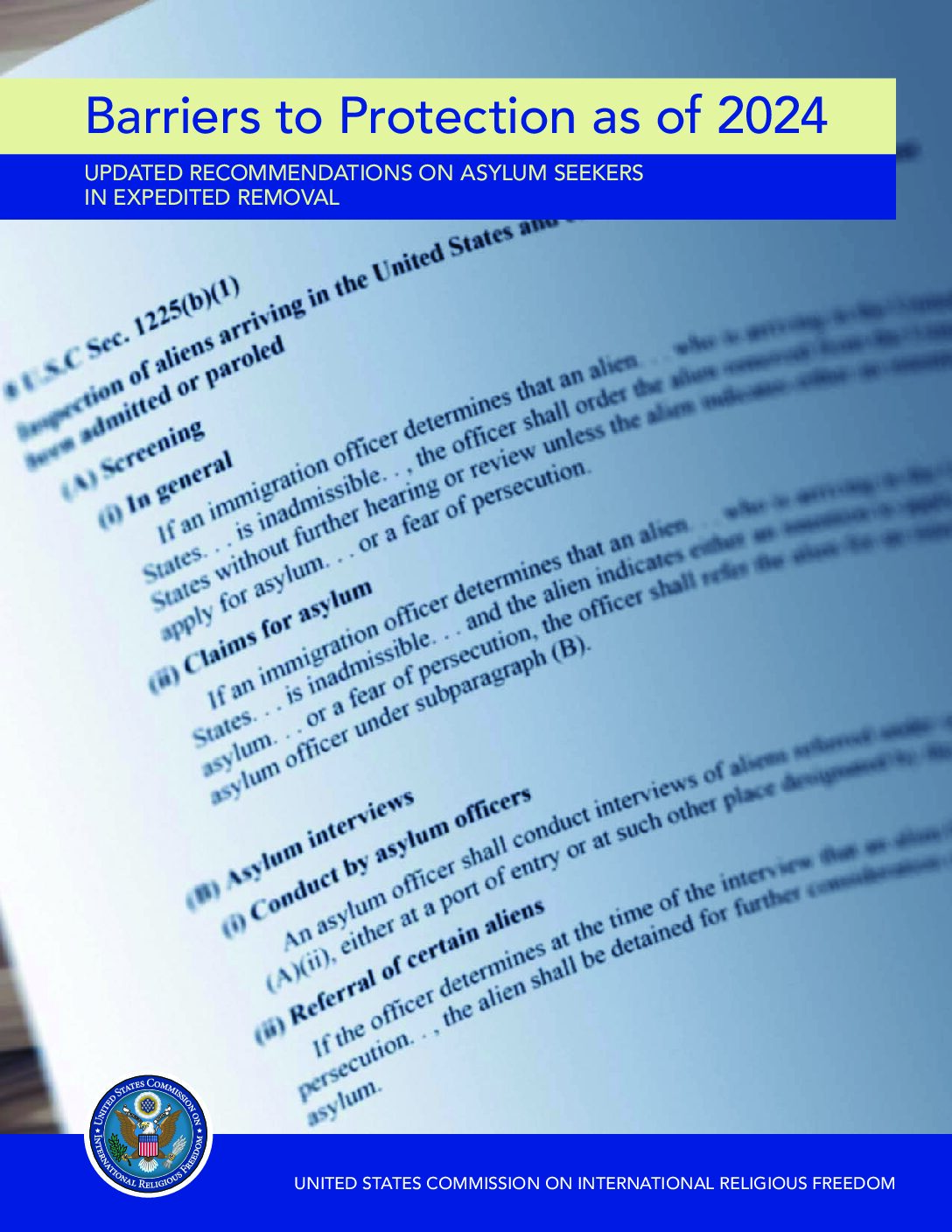
This study was conducted by the HIAS Center for Refugee Policy on behalf of the U.S. Commission on International Religious Freedom (USCIRF). It is a continuation of USCIRF’s original study, released in 2005, that aimed to examine the treatment of asylum seekers in expedited removal and ensure immigration officials implement this process in a manner that upholds the United States’ obligations to protect noncitizens fleeing persecution. HIAS also researched and drafted that report.
Expedited removal is a streamlined process to screen and swiftly remove certain noncitizens. If the Department of Homeland Security (DHS) decides to subject a noncitizen to expedited removal, they can be deported without an immigration court hearing, unless they express an intention to apply for asylum or fear of persecution, torture, or return to their home country. If they do, they are typically referred for a credible fear interview (CFI) to determine whether there is a significant possibility that they would later show that they qualify for asylum or other protections in immigration court. Some of the key takeaways from this report were that bona fide asylum seekers may not get the chance to access legal protection because:
- CBP is no longer asking them questions about fear of persecution during initial screenings to refer them for CFIs under the recent Securing the Border policy.
- The expedited removal process is now fast-tracked and conducted in CBP facilities that are not appropriate for overnight detention, preparation for CFIs, nor access to counsel.
The research team derived key findings based on their examination of recent policy changes to the expedited removal process, interviews, survey responses, site visits, credible fear interview observations, and consultations with DHS officials. Through this research, the team evaluated and reiterated relevant policy recommendations that USCIRF made to DHS, the Department of Justice, and Congress in previous reports, and made new recommendations based on current circumstances.
